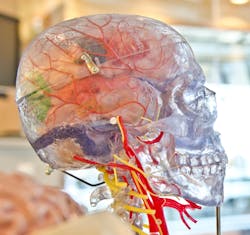Beware of unapproved, uncleared medical devices claiming to measure or diagnose brain injuries
Yesterday, the Food and Drug Administration warned the public not to use medical devices marketed to consumers that claim to help assess, diagnose or manage head injury, including concussion, traumatic brain injury (TBI) or mild TBI. In a new safety communication, the FDA warned that apps on a smartphone marketed to coaches or parents for use during sporting events, for example, have not been reviewed by the FDA for safety and efficacy and could result in an incorrect diagnosis, potentially leading to a person with a serious head injury returning to their normal activities instead of getting medical care.
To date, there are a limited number of medical devices that have been cleared or approved by the FDA to aid in the diagnosis, treatment, or management of concussion, and all of them require an evaluation by a healthcare professional.
“I want to be clear, there are currently no devices to aid in assessing concussion that should be used by consumers on their own,” said Jeffrey Shuren, director of the FDA’s Center for Devices and Radiological Health, in a safety communication. FDA explained that the products of concern claim to assess and diagnose any changes in brain function by having an injured person perform tests on a smartphone or tablet-based app to determine a change in physical or mental (cognitive) status including vision, concentration, memory, balance and speech.
As expected, such devices could deliver false reports which could lead to inappropriate action/treatment, such as a critically injured person resuming normal activities based on a false assessment given by one of these devices.
“Products being marketed for the assessment, diagnosis, or management of a head injury, including concussion, that have not been approved or cleared by the FDA are in violation of the law,” Shuren added, noting that the agency alerted the companies in question, asking them to remove such claims from their products. “We will continue to monitor the marketplace for devices making these unsubstantiated claims and are prepared to take further action if necessary.”
This follows a similar event last week, when FDA released a safety communication to the public and a warning letter to a lab that was falsely advertising a test that it said could predict patients' responses to specific medications.
